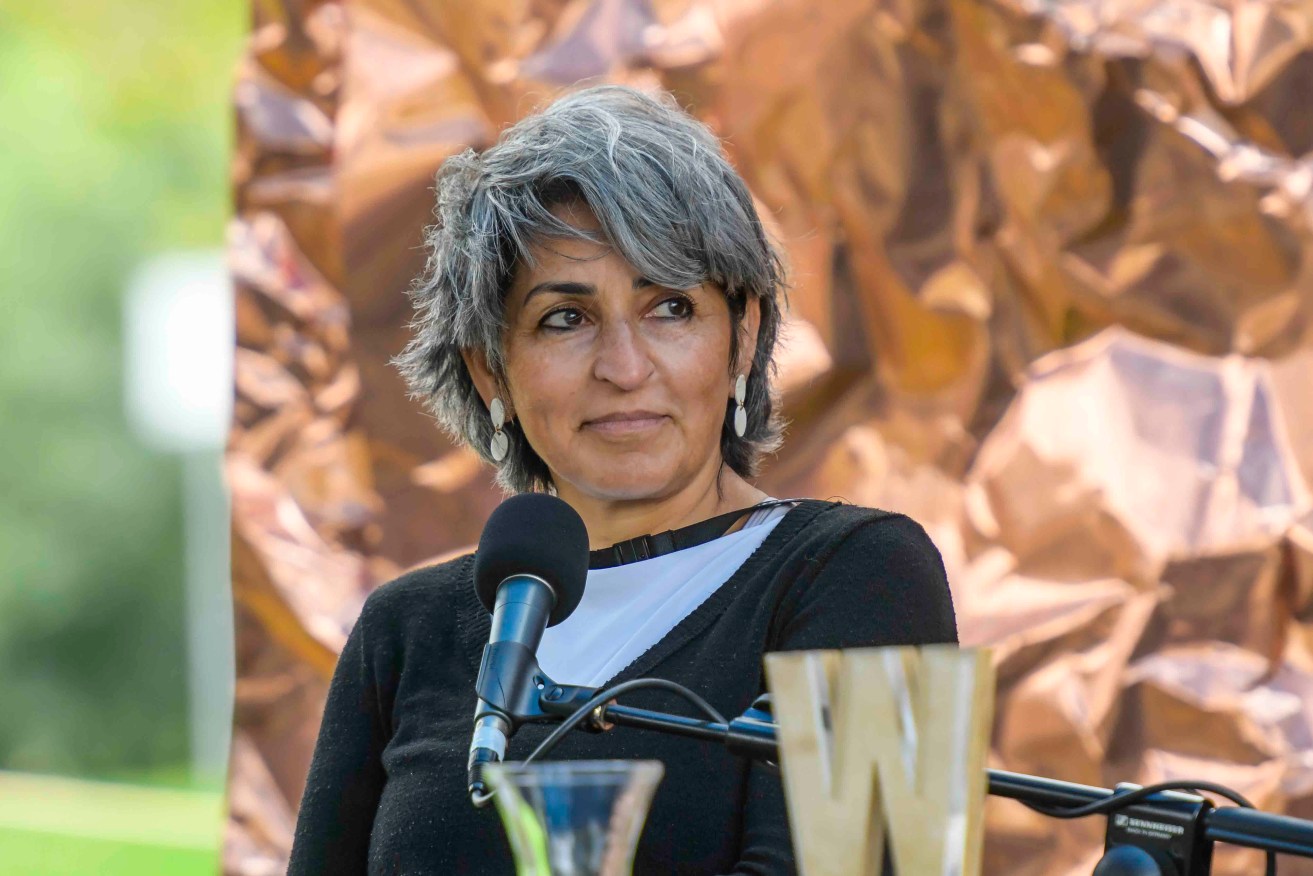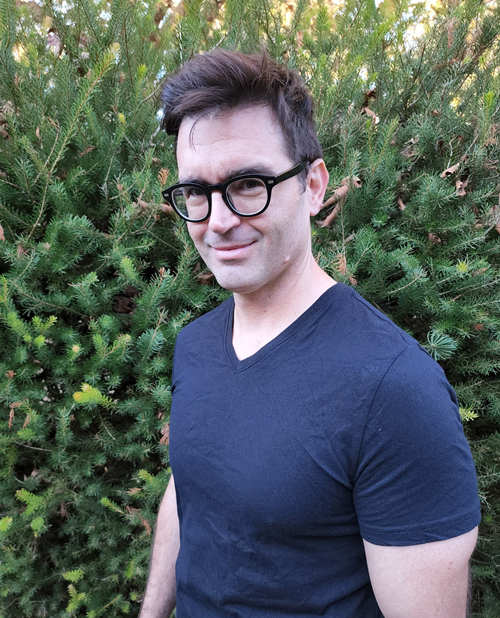Adelaide Writers’ Week: ‘It is terrible to be misunderstood’
The Palestinian author who sparked controversy and the withdrawal of three writers from Adelaide Writers’ Week clarifies her support for the Ukrainian people, while a traumatised child from Elizabeth North finds salvation through reading.


Susan Abulhawa directly addressed the concerns of a protester at Adelaide Writers' Week yesterday. Photo: Roy VanDerVegt / Supplied
Palestinian author and activist Susan Abulhawa feared her position on Ukraine was misunderstood. She wished for nothing but peace and prosperity for the Ukrainian people, and for Russia to be held accountable for its invasion.
Abulhawa, whose social media comments ahead of her arrival caused a storm of outrage and provoked two Ukrainian writers and a presenter to withdraw from the Writers’ Week program, and for the Malinauskas Government to consider withdrawing funding, addressed her words at Writers’ Week yesterday to a Ukrainian protestor who had earlier tried to disrupt an otherwise peaceful session.
The protester, part of a small group carrying Free Speech Yes, Hate Speech No placards, walked up to the stage two-thirds of the way through and tried to interrupt but was led away by security officers.
However, Abulhawa addressed him directly later, saying she heard the audience booing him and she understood why. But she also understood that his actions were coming from a place of pain, one that she and Palestinian playwright Samah Sabawi, who shared the stage, knew very well.
“It is terrible to be misunderstood in making political analyses and criticisms,” Abulhawa said. “To have that misunderstood as cheering for someone who invaded the sovereign territory of someone else.”
Speaking at a session, Politics in Fiction, the author of the award-winning novel Against the Loveless World said she understood what it was like to have bombs falling on the people you loved and she would not wish it on anybody, ever.
“Certainly not on Ukrainians, not for anybody, and that is not what I want for Ukraine,” she said. “I truly hope that there can be a resolution that of course holds Russia accountable but one that doesn’t take us all down this horrible spiral of death and destruction.”
Speaking directly to the Ukrainian man, who appeared to have walked off after being led away, she said she felt very sorry for his pain, and understood it.
“And I fear you misunderstand what I have said all along. But I wish you prosperity and peace and safety,” she said.
While emphasising her support for the Ukrainian people, Abulhawa did not recant from harsh criticism of its president, Volodymyr Zelensky. She did not speak about him directly, but said she and other Palestinians were extremely critical of former PLO head Yasser Arafat, who died in 2004, in ways similar to “the controversy regarding Zelensky”.
“We were extremely critical of Yasser Arafat in ways that mirror the harshness that I have expressed against Zelensky as well,” said Abulhawa, who was born to Palestinian parents in Kuwait. “Because he failed to protect his people and he betrayed the principles of being anti-occupation, which put Palestinians living in Kuwait in great danger.”
Other than the discreet attendance of SA Police officers, security at the event was not visibly heightened and the remarks of both authors were well received.
Samah Sabawi, who now lives in Melbourne and has won awards for her play, Tales of a City by the Sea, said nobody loved life more than people living in Gaza – Palestinian territory whose people are kept under surveillance and whose borders are controlled by Israel – because it was constantly under attack.
“Nobody is as eager to get married as young people are in Gaza – they all want to get married as soon as they can, and they all want to have babies as soon as they can,” Sabawi said.
“They appreciate life in a way that none of you can even imagine. That is not to romanticise it, or say it’s wonderful, because it isn’t. You are living day to day, minute to minute.”
Sabawi said the acceptance of her play, which depicted life in Gaza, onto the Victorian Year 11 and 12 drama curriculum caused outrage but its inclusion was upheld by the State Government.
“The sky fell for the Zionist lobby in Melbourne,” Sabawi said.
She said the accusation was made that it was a political play and that both sides were not represented.
“That was completely absurd for me – I kept saying, this is not a political play, this is a love story. The politics are there because when we write stories about our lives, we cannot not write the politics.”
———

Author Shannon Burns.
It wasn’t a war zone but life in Elizabeth North felt like it for author Shannon Burns, whose celebrated memoir, Childhood, about surviving early life with dysfunctional parents, can be harrowing reading.
Burns, now an Adelaide academic with a doctorate, said his mother was violent and incapable of caring for him, while his father who was distant and sometimes cruel.
“My mother was really, really violent but it was passionate violence. She would be enraged for a moment, lash out, sometimes quite brutally, but then it was over, it was like a quick storm,” Burns said. “In the other world [with his father] it was systematic … it didn’t seem to come from love, but from control.”
Burns’ salvation was being good at sport, and as a teenager discovering serious literature which included the entire works of Charles Dickens, and reading James Joyce’s Ulysses, at 17, not once but twice.
“I grew up in Adelaide, and there are libraries and so literature was available to me. Instead of going out and socialising, I was reading books.”
By the time he found the courage to go to university, which wasn’t until his 20s, he discovered a new world in which he finally fitted in.
“When I got to university, I’d read everything so I felt very comfortable, more comfortable than I had felt anywhere else in the world because I knew exactly what I was doing there,” he said. “Books acted as a kind of translator, moving me into that world.”
Adelaide Writers’ Week continues in the Pioneer Women’s Memorial Garden until March 9. InReview will be reporting from Writers’ Week each day – read coverage of other sessions here.
Read more 2023 Adelaide Festival stories and reviews here on InReview.




